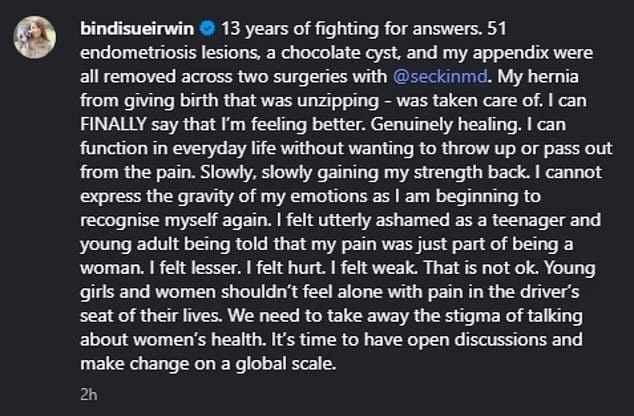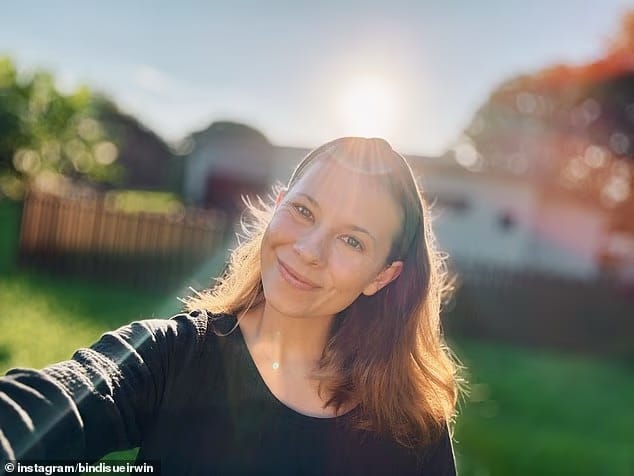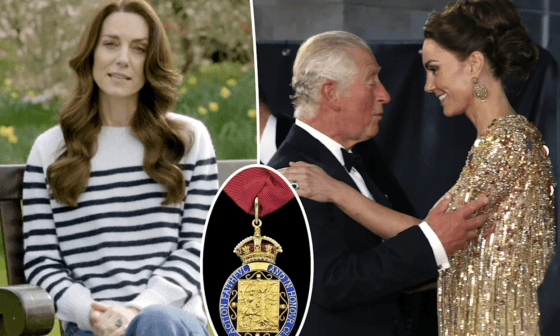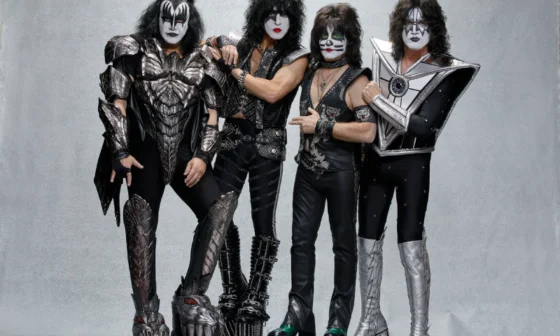It has been a season of trials for Bindi Irwin, daughter of the late Steve Irwin, but now the 27-year-old Wildlife Warrior is opening up with honesty and hope. Months after being rushed to hospital for emergency surgery, Bindi has revealed the full extent of her battle — one that left her silently suffering for over a decade.
In a candid Instagram post, Bindi shared that she has undergone two major surgeries to treat both a ruptured appendix and severe endometriosis. Across those procedures, doctors removed 51 endometriosis lesions, a chocolate cyst, her appendix, and even repaired a hernia that had been causing her immense pain since the birth of her daughter, Grace.
“Thirteen years of fighting for answers,” Bindi wrote. “I can finally say I’m feeling better. Genuinely healing. I can function in everyday life without wanting to throw up or pass out from the pain.”

For years, her symptoms had been dismissed as “just part of being a woman,” a stigma that left her ashamed and doubting her own strength. “I felt lesser. I felt weak. That is not OK,” she admitted. But now, she is determined to make her voice a beacon for others. “Young girls and women shouldn’t feel alone with pain in the driver’s seat of their lives. It’s time to have open discussions and make change on a global scale.”
Alongside her heartfelt message, Bindi shared a radiant selfie, the sunlight casting a golden glow behind her. The image stood as a symbol of her resilience — a woman not defined by illness, but by the courage to speak openly about it. She credited Dr. Amanda Chu and the Seckin Endometriosis Center in New York for helping her finally find relief, while also tagging the Endometriosis Foundation of America, an organization fighting for awareness and research.
The health crisis had reached its peak in May, when Bindi was rushed into emergency surgery just hours after arriving in Las Vegas for a gala honoring her father. She had planned to attend with her mother, Terri, and brother, Robert — but instead, she was taken to hospital in excruciating pain. Doctors quickly confirmed her appendix had ruptured.

Robert later told People magazine that the ordeal came as a shock: “She’s going to be okay, but surgery — out of all the things we were ready for, that was not one of them.” Terri stayed by her daughter’s side throughout, missing the event to support Bindi through the emergency.
In hindsight, Bindi now calls that frightening day a “blessing in disguise.” The appendix removal led doctors to uncover additional lesions caused by endometriosis — damage that might have gone untreated had she not needed surgery so suddenly.
Today, as she continues to heal, Bindi says she is slowly regaining her strength and reclaiming her life. Her story is more than a personal health update — it is a call for change, breaking down the silence around women’s pain and offering hope to those still searching for answers.
And though the journey has been long and painful, Bindi’s message shines with determination: “I can finally say that I’m feeling better. I’m healing. And I’m ready to live.”





